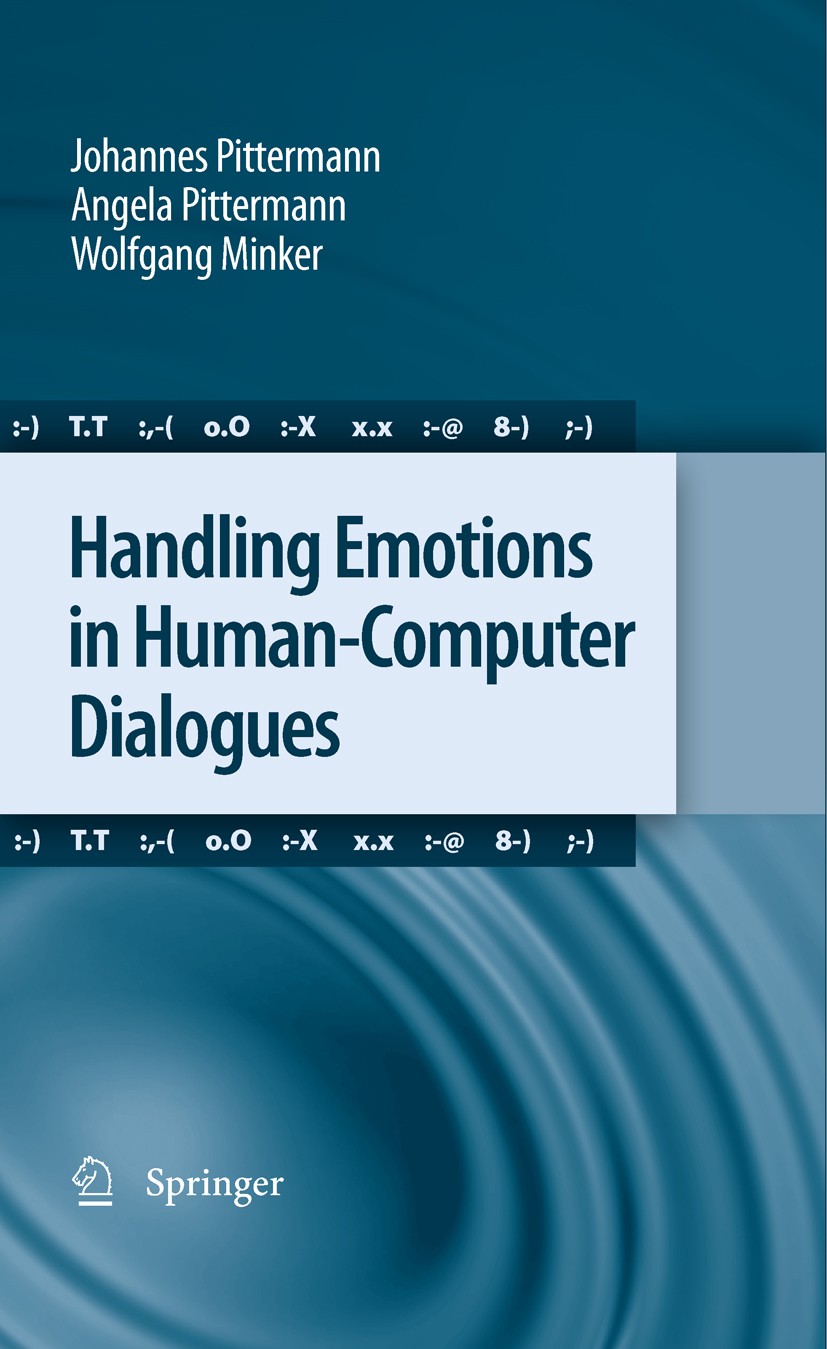| 書目名稱 | Handling Emotions in Human-Computer Dialogues | | 編輯 | Johannes Pittermann,Angela Pittermann,Wolfgang Min | | 視頻video | http://file.papertrans.cn/424/423919/423919.mp4 | | 概述 | A unique book that takes emotional aspects of human-machine interaction and adaptive dialogue systems as its focal point.Presents novel methods to perform robust speech-based emotion recognition at lo | | 圖書封面 |  | | 描述 | .In this book, a novel approach that combines speech-based emotion recognition with adaptive human-computer dialogue modeling is described. With the robust recognition of emotions from speech signals as their goal, the authors analyze the effectiveness of using a plain emotion recognizer, a speech-emotion recognizer combining speech and emotion recognition, and multiple speech-emotion recognizers at the same time. The semi-stochastic dialogue model employed relates user emotion management to the corresponding dialogue interaction history and allows the device to adapt itself to the context, including altering the stylistic realization of its speech. This comprehensive volume begins by introducing spoken language dialogue systems and providing an overview of human emotions, theories, categorization and emotional speech. It moves on to cover the adaptive semi-stochastic dialogue model and the basic concepts of speech-emotion recognition. Finally, the authors show how speech-emotion recognizers can be optimized, and how an adaptive dialogue manager can be implemented. The book, with its novel methods to perform robust speech-based emotion recognition at low complexity, will be of inte | | 出版日期 | Book 20101st edition | | 關(guān)鍵詞 | Computational Linguistics; Human-Computer Interaction; Recognition; Speech signal processing; Spoken dia | | 版次 | 1 | | doi | https://doi.org/10.1007/978-90-481-3129-7 | | isbn_softcover | 978-94-007-9170-1 | | isbn_ebook | 978-90-481-3129-7 | | copyright | Springer Science+Business Media B.V. 2010 |
The information of publication is updating

|
|
 |Archiver|手機(jī)版|小黑屋|
派博傳思國際
( 京公網(wǎng)安備110108008328)
GMT+8, 2025-10-10 10:53
|Archiver|手機(jī)版|小黑屋|
派博傳思國際
( 京公網(wǎng)安備110108008328)
GMT+8, 2025-10-10 10:53


